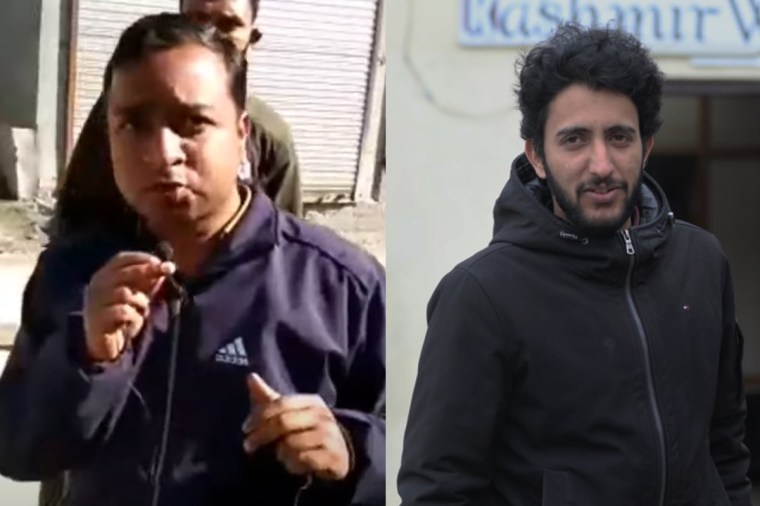New Delhi, March 1, 2022 – Authorities in Uttarakhand and Indian-administered Jammu and Kashmir must release journalists Kishor Ram and Fahad Shah immediately and cease arresting members of the press, the Committee to Protect Journalists said Tuesday.
On February 23, police in the northern state of Uttarakhand’s Pithoragarh district arrested Ram, a reporter with the privately owned news website Janjwar, according to news reports and Ram’s editor Ajay Prakash, who spoke to CPJ in a phone interview.
Separately, on Saturday, February 26, police in Jammu and Kashmir arrested Shah, editor of the privately owned news portal The Kashmir Walla, hours after he was granted interim bail in another case, according to news reports.
Both journalists remained in detention as of Tuesday evening, according to those sources.
“The arrest of Kishor Ram and re-arrest of Fahad Shah show India’s escalating intolerance toward journalists who are simply doing their jobs,” said CPJ Program Director Carlos Martínez de la Serna, in New York. “Authorities must immediately release Shah and Ram, drop any investigations into their journalistic work, and create a safe and free atmosphere for journalists to report the news.”
A police first information report, which CPJ reviewed, accused Ram of promoting enmity between castes in two articles: one featuring interviews with relatives of a murdered man in the Dalit community, the lowest strata of the caste system, and another that included an interview with the father of a Dalit girl who was allegedly raped.
Ram himself belongs to the Dalit community, and covers news and human rights issues affecting the community, according to Prakash and those news reports.
If charged and convicted of promoting enmity under the Indian penal code, Ram could face up to three years in prison and an unspecified fine.
CPJ emailed Uttarakhand Police Director-General Ashok Kumar for comment, but dd not receive any reply.
In Shah’s case, police previously arrested him on February 4 for allegedly publishing “anti-national” content, and began investigating him for sedition and making statements causing public mischief under the Indian penal code and the anti-terror Unlawful Activities (Prevention) Act, as CPJ documented at the time.
Shah was granted bail in that case on Saturday, but was then re-arrested in relation to The Kashmir Walla’s reporting on alleged official pressure on a Kashmir school, according to reports by his outlet.
Police accuse Shah of violating two sections of the Indian penal code in that reporting: provocation with intent to cause a riot, and publishing statements conducive to public mischief, according to The Kashmir Walla. Each of those offenses can carry a prison sentence between six months and three years and an unspecified fine, according to the law.
Similarly, police released The Kashmir Walla trainee reporter Sajad Gul on bail on January 15, but re-arrested him the following day in a separate case, according to news reports.
CPJ texted Jammu and Kashmir Police Director-General Dilbag Singh for comment, but did not receive any reply.
On February 14, CPJ joined 57 publications, press freedom groups, and human rights organizations in a letter to Jammu and Kashmir Lieutenant Governor Manoj Sinha demanding Shah’s release, along with Gul and journalists Aasif Sultan and Manan Gulzar Dar.
In an unrelated incident on February 7, Uttarakhand police commandeered a taxi Prakash had rented while covering local elections and, after he identified himself as a journalist and protested the seizure, police detained him for about nine hours, according to Prakash and news reports.
Police opened an investigation into Prakash for allegedly obstructing public servants from doing their jobs, according to the journalist and police documents reviewed by CPJ. If charged and convicted, he could face up to three months in prison or a fine of up to 500 rupees (US $7), according to the penal code.
[Editor’s note: The third and 11th paragraphs have been updated to reflect the accurate date of Shah’s re-arrest.]
